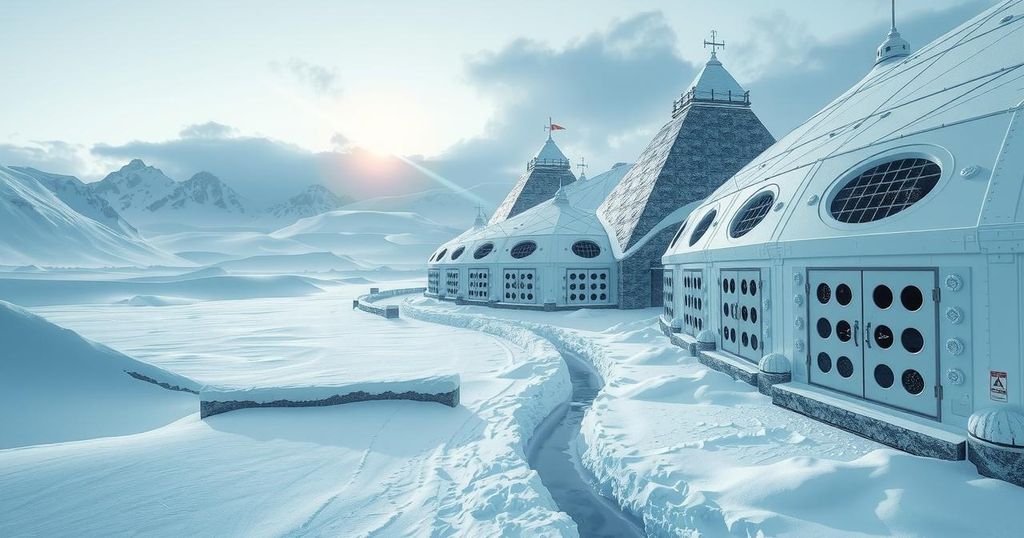The Global Seed Vault, known as the Doomsday Vault, is located in the Svalbard archipelago, safeguarding 930,000 seed samples. Operational since 2008, it protects agricultural biodiversity against various threats, opening only six times a year. It has already played a crucial role in preserving crops, such as during the Aleppo conflict, underscoring its significance in global food security.
Nestled within the Arctic landscape of Norway’s Svalbard archipelago is the Global Seed Vault, often termed the “Doomsday Vault.” This facility serves as a protective measure for agricultural biodiversity, housing approximately 930,000 seed samples from around the globe. It acts as an essential insurance policy for humanity, prepared to safeguard crops in the event of disasters.
Operational since 2008, the Svalbard Global Seed Vault is accessed only six times annually to receive new seed deposits from gene banks worldwide. Its primary goal is to preserve biodiversity and food security against various crises, including climate change, warfare, and disease outbreaks. Strategically situated for political stability and natural refrigeration, the vault maintains an internal temperature of -18°C.
The Global Seed Vault has already demonstrated its critical function. For instance, in 2015, it provided replacement seeds to a gene bank in Aleppo, Syria, that had been destroyed amid conflicts. This intervention was vital in preserving unique plant varieties that could have become extinct otherwise. Furthermore, the alarming loss of agricultural biodiversity emphasizes the vault’s significance; the United States, for example, has lost over 90% of its fruit and vegetable varieties since the early 1900s.
The design of the Doomsday Vault allows it to withstand natural disasters and warfare while ensuring seed viability for extended periods, even without power. It spans 430 feet into the mountain, with seeds stored in vacuum-sealed packages. Though these seeds lack monetary value, they represent a critical component of global food security, holding thousands of years of agricultural history within its walls.
The Global Seed Vault, or Doomsday Vault, serves as a pivotal institution for safeguarding global agricultural biodiversity. Its ability to provide replacements for lost seeds during conflicts and its design for longevity emphasize its importance in a rapidly changing world. The vault represents a commitment to protecting food security amid ongoing threats, ensuring that future generations will have access to diverse crops essential for nourishing the planet.
Original Source: indiandefencereview.com






